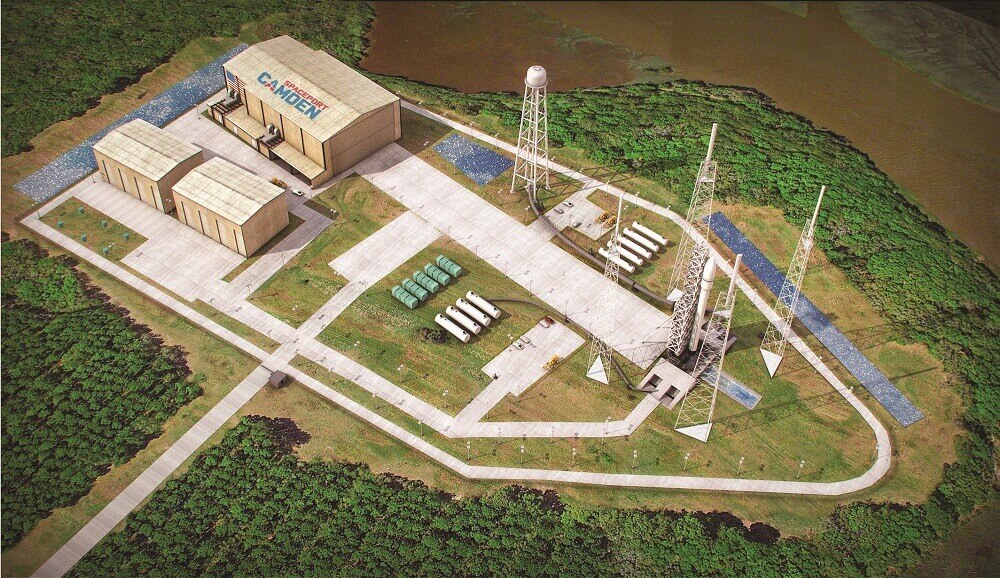
Voters block agreement for planned Georgia spaceport (Image Credit: Space News)
WASHINGTON — Voters in a Georgia county have dealt a potentially fatal blow to a proposed spaceport, a move that may provide lessons for other prospective spaceports.
In a special referendum held March 8 in Camden County, Georgia, 72% voted in favor of terminating an agreement between the county government and Union Carbide to purchase property that the county intended to use for Spaceport Camden, a vertical launch site. About 17% of the county’s registered voters participated in the election, with that issue the only one on the ballot.
The referendum came two and a half months after the Federal Aviation Administration granted the county a spaceport license, formally known as a launch site operator’s license, the 13th so far. The license came after years of environmental reviews of the planned launch site, originally designed to accommodate larger vehicles like SpaceX’s Falcon 9 but later rescoped for smaller vehicles.
Many residents and environmental groups, though, opposed the spaceport even after the FAA issued the license. They were concerned about the environmental effects on the area, including nearby Cumberland Island National Seashore, particularly in the event of a launch failure.
Among the opponents of the spaceport is One Hundred Miles, a nonprofit organization devoted to protecting Georgia’s coast. “Rocket failures that occur over Cumberland Island may cause falling debris, chemical spills and fire,” the organization stated. “Due to the remote location of Cumberland Island, it is unlikely that pollution or a fire would be contained before causing catastrophic damage to property, wildlife and habitat — some of which would be irreversible.”
One Hundred Miles was among the backers of a petition seeking a referendum on the property purchase agreement through a little-used provision of the Georgia state constitution. A county judge allowed the referendum to proceed, although the county government is appealing the decision and seeking to invalidate the referendum.
“The ability of a bare minority of registered voters to trigger a referendum election is among the key issues that the Georgia Court of Appeals determined should be decided by the Georgia Supreme Court,” a Camden County spokesperson said in a statement to SpaceNews March 9. “Camden County is assessing the results of last night’s outcome on the future of Spaceport Camden and is working to determine the best way to preserve taxpayers’ investment in the recently issued Launch Site Operator License while the Georgia Supreme Court reviews the legal issues surrounding this election.”
Even if the courts throw out the referendum, the election illustrates strong public opposition to the planned launch site, which has not announced any customers. It is not alone. SpaceX’s plans for Starship orbital launches from its Boca Chica, Texas, site triggered both strong support as well as strong opposition from residents. The FAA is continuing its environmental review of those plans, with a decision delayed twice, most recently to March 28.
“Current and prospective spaceports need to do a better job of engaging with local communities and other key stakeholders,” said George Nield, former FAA associate administrator for commercial space transportation and current chair of the Global Spaceport Alliance, a group of about two dozen current and prospective spaceports. “Much of the opposition we are seeing is based on incorrect information or misunderstandings of what being a spaceport is all about.”
He noted that the FAA has a “perfect safety record” when it comes to protecting the uninvolved public in licensed launches, and that spaceports have additional benefits beyond hosting launches, from being business develop hubs to support education and workforce development. “Being able to clearly articulate the benefits that a spaceport can provide could go a long way in building community support.”
Nield added that the government needs to do a better job evaluating spaceport license applications, a process he says can take five to seven years. “Collecting the necessary information, performing the appropriate assessments and then quickly coming to a decision, one way or the other, is a skill the U.S. really needs to master if it wants it wants to be a leader in space, whether for national security missions, for technological leadership or for economic competitiveness.”








